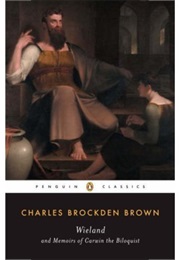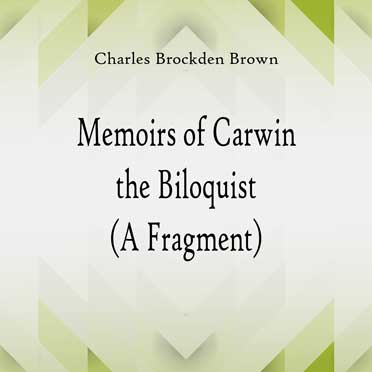

He also, through the character of Carwin, establishes the ongoing fear of foreign intrusion. society and the important Rousseauian (?) concept of the expression of free will. other ideas in vogue and also examines the individual vs.

Brown sets up a debate between reason-based Enlightenment thinking vs. Without going into great detail here about philosophical and political thought during this period, the "advertisement" at the book's beginning gives away the fact that Wieland is going to illustrate "some important branches of the moral constitution of man." The idea of understanding the "moral constitution" or "innate nature" of mankind was thought to be a sort of precondition for enlightened leaders to be able to establish some kind of system of government that was workable for everyone - and this at a time when politics was divided between those advocating for a strong, aristocratic central government (Federalists) and those who wanted more local control and expression of the general will (Republicans). Yes, it's overly florid in language yes, it's not as well written as it probably should have been (more on this later) but overall, it's an interesting story that, as with its predecessors in my great american novel project, works on more than the just the surface level, a point that several modern readers seemed to have missed when judging this novel. Wieland is billed as America's first Gothic novel, and despite the poor reviews that it's been given by modern readers, I couldn't put this book down. Charles Brockden Brown, who wrote Wieland in 1798, used Yates' story, which he probably assumed readers would be familiar with already, to create his own tale, which by the way, starts with the same sort of religious mania. He finally relented and killed the last living child after making her dance around the other bodies. Faithful James Yates went on to murder all but one child, then injured his wife before killing her too. The spirit wasn't quite finished with him yet, saying that there was still his family to consider. After the Bible went into the fire, he took an axe to his animals.


According to an account published in two parts in 1796, in 1781, James Yates of New York heard a voice, "a spirit", telling him to destroy his idols.


 0 kommentar(er)
0 kommentar(er)
